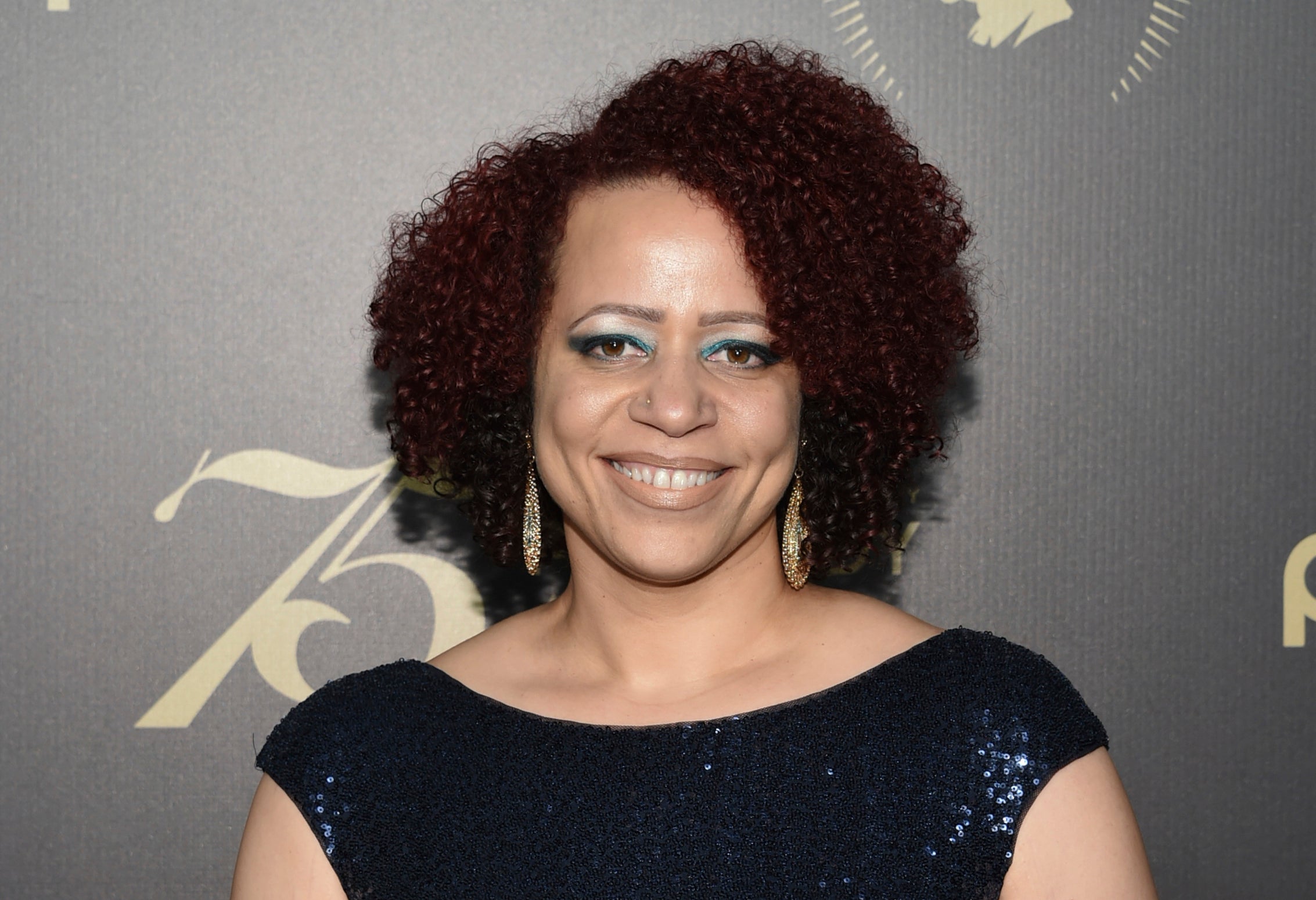Donor: Concerns over Hannah-Jones prompted emails to UNC
A major University of North Carolina donor whose name is on its journalism school says he is curious about how much research went into the selection of Nikole Hannah-Jones to join the faculty

A major University of North Carolina donor said Wednesday that he sent emails to university officials questioning the hiring of Nikole Hannah-Jones after he became concerned about how much research went into the selection of the investigative journalist, whose award-winning work on slavery he called “highly contentious and highly controversial."
The emails from newspaper publisher Walter Hussman Jr., whose name is on UNC's journalism school, were sent to university leaders in the weeks before Hannah-Jones' submission for tenure was halted in January. She was instead offered a contract position, despite the fact that her predecessors were given tenure when appointed.
Hussman, publisher of the Arkansas Democrat-Gazette, told The Associated Press that he sent the series of emails because he wanted to share his concerns with UNC-Chapel Hill Vice Chancellor for University Development David Routh, Chancellor Kevin Guskiewicz and journalism school Dean Susan King. In 2019, Hussman pledged $25 million to what’s now known as the Hussman School of Journalism and Media.
“I wonder how much research she did into Nikole Hannah-Jones like I'd just done," Hussman said, referring to King. “Moreover, I wonder how much the chancellor's done. I wonder how much the vice chancellor's done. Maybe I should share these concerns with them, too.”
The university's failure to offer Hannah-Jones tenure has prompted outcry by dozens of members of the journalism school's faculty, who have demanded an explanation. Her lawyers argue the move is part of a conservative backlash against scholars telling the truth about the history of racism in the U.S.
Hussman, 74, said that instead of sending one lengthy email, he sent separate emails, based on arguments from other historians, challenging assertions by Hannah-Jones that the American Revolution was fought to protect slavery, that the fight for freedom and equality for Blacks was fought by Blacks alone, and about reparations. The news website The Assembly first obtained the emails and reported on their content.
Hussman said he showed his emails to one trustee, who suggested he show them to the other board members, but he said he decided to go no further. He declined to say which trustee he reached out to.
“I don't think that's my role as a donor. It would be perceived as lobbying the board to not hire,” he said. “I've made it known to one of the trustees; if they want to share it with others, they can. If they don't want to share it with others, that's their discretion.”
In response to an email seeking comment from Routh, King or Guskiewicz, University spokesman Joel Curran said in a statement that while the school can't comment specifically on Hussman's concerns, he said donors aren't included in personnel matters.
“Private support is the margin of excellence for a university like UNC-Chapel Hill. We have long relationships with our donors, and we listen to their input on a wide variety of matters," Curran said. "But when a gift is made, our development team makes it clear that donors should have no expectation of influencing curriculum or personnel decisions.”
Hannah-Jones, whose work on The 1619 Project for the New York Times Magazine won a Pulitzer Prize accepted a five-year contract to join the journalism school's faculty as the Knight Chair in Race and Investigative Journalism earlier this year. A trustee who vets submissions for tenure postponed consideration of Hannah-Jones’ application in January because of questions about her non-academic background, the head of the board of trustees said last month. The submission never came before the full board of trustees for a vote.
Since then, the foundation that endows the Knight chair also encouraged the trustees to reconsider. Last week, Hannah-Jones issued a statement saying she had retained attorneys from the NAACP legal defense fund as she considers legal action against the school.
Hussman said he called King and told her his research of Hannah-Jones and her writings had raised concerns with him.
"This 1619 Project is highly contentious and highly controversial,” Hussman said of his conversation with King. He said he told her that hiring Hannah-Jones would mean those controversies would follow her to the journalism school and university and overshadow the teaching and core values at the school.
King countered with the fact that Hannah-Jones had won a Pulitzer Prize, but Hussman said that didn't allay his concerns. He said their conversation ended with their agreeing to disagree. Hussman said King had offered to set up a Zoom meeting between him and Hannah-Jones, but the controversy was beginning to roil and the meeting never occurred, although he added that he would like to meet her and discuss her work and her goals. Until then, Hussman said he feels he did what he set out to do.
“I've done some due diligence here, and I think it's the right thing to do that," he said.